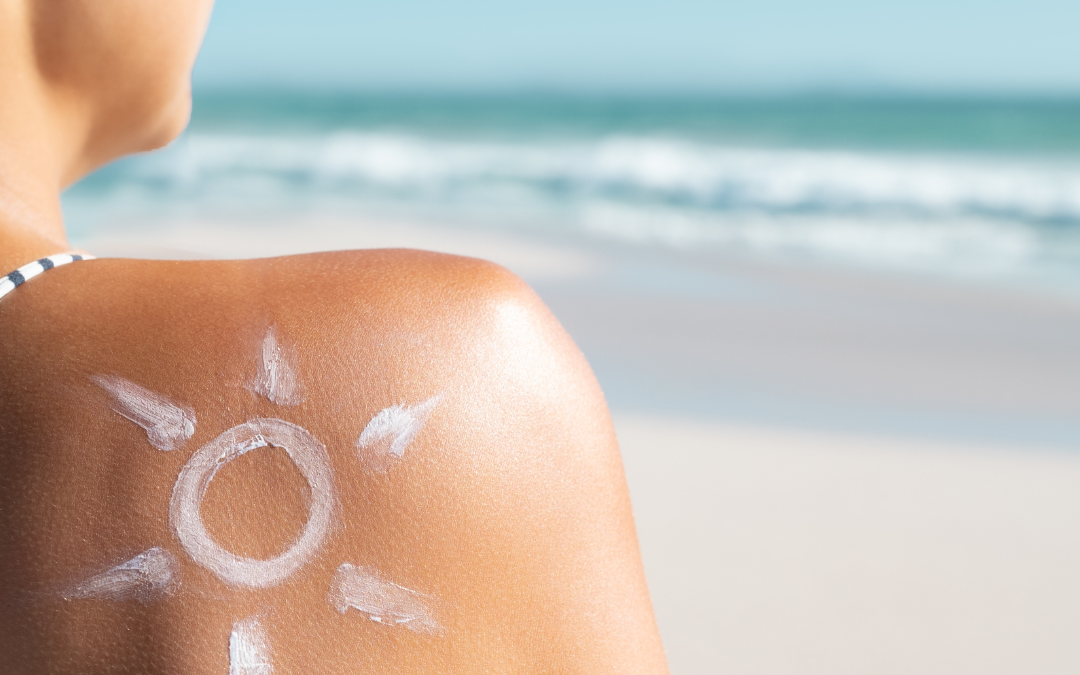
How to Stop Mosquitoes Biting Naturally

Mosquitos are annoying and can ruin a nice evening sitting outside or when you are trying to sleep but are furiously scratching all those annoying bites. Have you ever wondered why some people are more prone to mosquito bites than others?
Mosquitos are not just an annoyance; they can also pose serious health risks by transmitting diseases such as malaria, dengue fever, and the Zika virus. While chemical repellents are widely used, many people are turning to natural alternatives to avoid all the unnecessary toxins and potential side effects.
Let’s explore why certain people get bitten by mosquitos than others, natural repellants that grown in your garden as well as natural mosquito repellent that you can apply to your skin.
Why are certain people bitten by mosquitos more often?
Mosquitos have their hit list of preferred dinning establishments, and these include:
- They prefer dinning at blood type O restaurants (especially over blood Type A).
- They prefer dining at dark pubs with minimal lighting – so anyone wearing black or dark clothes is a big hit – so no ACDC shirts).
- Mosquitos are also looking for a good time and love to party. They love going to nightclubs and bars where they have a selection of alcohol – research shows that mosquitoes are attracted to people who have been drinking.
- You have heard of people going to oxygen bars well mosquitos love going to carbon dioxide bars – people doing physical activity or any activity that results in more heavy breathing is on mosquito’s hit list.
- They love hot people – not necessarily good looking just giving off a lot of heat.
- They like to engage in intermittent fasting during the day and therefore prefer to make their reservations for dinner at dusk and dawn.
Herbs and Plants: Grow Your Own Protection
Having pots of these herbs and plants in areas outside that you commonly use such as by the BBQ, outdoor dinning area or seating area, patio or even on the dock at the cottage can help make sitting outside during prime biting time more enjoyable.
Basil: Basil is not just a culinary herb; its strong scent also repels mosquitos. You can plant basil around your home or use its essential oil for added protection.
Lavender: Not only is it pretty and can be used for multiple purposes such as relaxation and sleep it is great as a natural mosquito repellant.
Catnip: Catnip contains nepetalactone, which is highly effective at repelling mosquitoes. Studies have shown it to be even more effective than some chemical repellents.
Marigolds: The scent of marigolds is known to deter mosquitos. Planting marigolds in your garden can help keep these insects away while adding a splash of color to your outdoor space.
Lemon Balm: Lemon balm is a member of the mint family and has a citrusy scent that mosquitoes find unattractive. Crushing the leaves and rubbing them on your skin can provide a natural barrier against mosquito bites.
Natural Mosquito Bite Repellant Remedies
There are a number of studies that have shown certain herbs and essential oils can help repel mosquito bites. These include tee tree oil, soybean oil, citronella, thyme oil, cinnamon oil, lavender and lemon eucalyptus oil. Making your own mosquito repellant can help avoid unwanted toxic repellants, provide a great aroma and may actually be more effective than the commercial ones.
- Lemon eucalyptus oil
Used since the 1940s, lemon eucalyptus oil is one of the more well-known natural repellents. One study showed that a mixture of 32% lemon eucalyptus oil provided more than 95% protection against mosquitos for 3 hours. (1)
You can create your own mixture with 1 part lemon eucalyptus oil to 10 parts sunflower oil or witch hazel. Do not use this for kids under 3 years of age.
- Lavender
Lavender has analgesic, antifungal, and antiseptic qualities. This means that in addition to preventing mosquito bites, it can calm and soothe the skin. Just drop some lavender oil on a clean cloth and rub it onto the skin and try using lavender scented candles or lavender oil in a diffuser.
- Cinnamon oil
One study showed cinnamon oil can kill off mosquito eggs. It can also act as a repellent against adult mosquitos. (2)
To make a diluted 1% solution, mix 1/4 teaspoon (or 24 drops) of oil for every 4 ounces of water. You can spray the fluid onto your skin or clothing, around your home, and onto upholstery or plants. Be careful when applying cinnamon oil, as a concentrated dose can irritate your skin.
- Thyme oil
Thyme oil is also known to help repel insects. Even throwing thyme leaves into a campfire can help as burning thyme leaves offers 85% protection for 60 to 90 minutes.
For a homemade brew, combine 4 drops of thyme oil to every tsp of base oil, such as olive or jojoba oil. For a spray, mix 5 drops of thyme oil with 2 ounces of water. (3)
- Soybean oil and lemon grass oil
According to the University of Florida Medical Entomology Laboratory, soybean-based products can help to prevent mosquito bites. You can use soybean oil, and add a little lemongrass oil. This concoction has been tested to guard against different species of mosquitos. (4)
- Citronella
Citronella is one of the most common and go-to mosquito repellants. Citronella candles have ben shown to provide up to 50% extra protection.
- Tea tree oil
Tea tree oil, contains antiseptic, antimicrobial, and anti-inflammatory properties. But studies also suggest that tea tree oil may be an effective insect repellent.
Research shows that repellents containing tea tree oil are effective against mosquitos, bush flies, and biting midges. (5)
Other mosquito repellants
Interestingly enough Victoria Secrets Bombshell perfume has been shown to repel mosquitos and reduce the risk of getting bitten. (6)
Natural Repellent Recipe
Creating your own natural mosquito repellent is simple and allows you to customize the formula to your liking.
Mosquito Repellant Essential Oil Spray:
Ingredients:
- 10 drops of lemon eucalyptus oil
- 10 drops of lavender oil
- 10 drops of tea tree oil
- 1/2 cup of water
Instructions:
- Mix all the ingredients in a spray bottle.
- Shake well before each use.
- Spray on exposed skin and clothing, avoiding the face.
How to Safely Put on Insect Repellant
- Put on sunscreen first.
- Don’t apply repellents under your clothes.
- Don’t spray directly onto face; instead, spray your hands and rub repellent on your face.
- Avoid your eyes and mouth.
- Don’t apply on injured or irritated skin.
- Don’t allow children to apply repellent themselves.
- Wash your hands after you apply repellent.
What to do when you get a bite?
To treat mosquito bites, you can try
- Rubbing apple cider vinegar at the site of the bite.
Putting a slice of raw onion or freshly cut garlic on the bite can also provide relief and guard against infection.
Over-the-counter anti-histamine creams, like calamine lotion or hydrocortisone cream, can help as well.
Summary:
We hope with these strategies you will be able to enjoy your evening or early morning outside not only without the annoying mosquitos and mosquito bites to contend with but with beautiful natural aromas from your garden or repellant.
References
- https://pubmed.ncbi.nlm.nih.gov/24772681/
- https://pubs.acs.org/doi/abs/10.1021/jf0497152
- https://malariajournal.biomedcentral.com/articles/10.1186/1475-2875-10-S1-S11
- https://pubmed.ncbi.nlm.nih.gov/22299433/
- https://onlinelibrary.wiley.com/doi/full/10.1111/j.1440-6055.2009.00736.x
- https://academic.oup.com/jinsectscience/article/15/1/140/2583458















